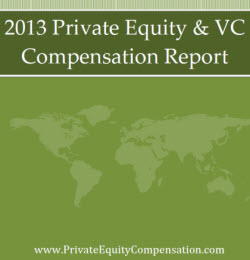The report released by PrivateEquityCompensation.com indicating that overall compensation in the private equity industry continues to trend upward, comes amidst a muddled backdrop of steady fundraising activity and decreasing exit and merger activity. Clearly, the industry is still in full recovery mode following the financial crisis of a few years ago, and a shakeout continues to change the private equity landscape for general partners and limited partners alike. The question is whether another year of anemic economic growth and fund under performance will put pressure on PE firms to shave compensation, or will the shakeout continue to put upward pressure on earnings as smaller firms vie for top talent.
Overall private equity activity experienced a slowdown in 2011 with the Private Equity Index falling below its ten year moving average of 100, landing at 88.6 at the end of the third quarter. A decrease in private equity investment and exits were the primary contributors to the decline. Reflecting on the downturn, Bronwyn Bailey, Vice President of Research at the Private Equity Growth Capital Council (PEGCC) commented, “The drop in the PE Index in the third quarter reflects trends in the larger economy. In particular, lower exit volumes – and especially from IPOs – reflect the volatility and uncertainty in public markets, which impacts valuations of portfolio companies and the exit environment,” But he holds out the hope that things will turn around again in 2012. “We expect that with greater certainty in financial markets, private equity activity will rebound,” Bailey concluded.
That turnaround is not likely to occur without some more pain in the industry as the herd continues to thin, and many firms continue to struggle to raise capital. Unquestionably the period of “easy money” in fund raising has long since passed, and many firms are reinventing themselves to reflect the changing attitudes of investors as well as to adapt to a more challenging economy. PE firms can no longer rely on the luck of market timing to execute their exit strategies, and must take a more active role on driving the growth companies need to succeed in a slower economy. It will also require more specialization and niche investing which will narrow the focus of fund portfolios.
PE firms will face additional challenges from the banking industry as the Dodd-Frank reform kicks in to limit bank investments in private equity funds. Coupled with any constriction of lending that might arise out of the Euro-crisis, many firms will be forced to limit their deals and, potentially, the return on their investments.
Finally, it will be interesting to see how the industry weathers the political storm as the Presidential campaign gets into full swing and President Obama attempts to discredit Mitt Romney for his dastardly deeds as a private equity “robber baron.” That’s not the kind of attention the industry needs as it struggles to regain its footing.


